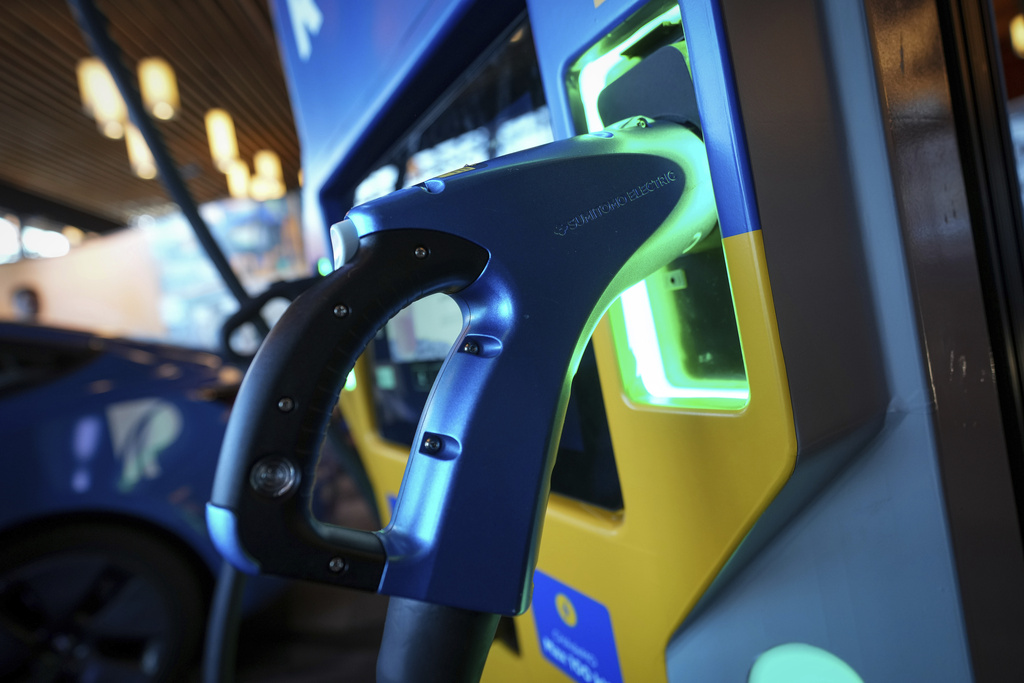Starting next year, people who want to buy a new or used electric or plug-in hybrid vehicle will be able to get U.S. government income tax credits at the time of purchase.
Eligible buyers, including those that bought an EV or hybrid this year, have had to wait until they filed their federal income tax returns to actually get the benefits.
The Treasury Department says the near-instant credits of $7,500 for an eligible new vehicle and $4,000 for a qualifying used vehicle should lower purchasing costs for consumers and help car dealers by boosting EV sales.
Under the Inflation Reduction Act, which included the credits, buyers can transfer the credits to dealers, which can apply them at the point of sale starting Jan. 1.
Plus, the government says people can get the full credits from dealers regardless of how much they owe in federal taxes.
The vehicles have to qualify under guidelines spelled out in the law, and buyers’ incomes have to fall below limits.
Dealers have to hold state or local licenses in order to offer the credits, and they must register on an Internal Revenue Service website. After dealers turn in the sales paperwork, dealers can expect to get payments from the government within about 72 hours, officials said.
To be eligible, electric vehicles or plug-ins have to be manufactured in North America. SUVs, vans and trucks can’t have a sticker price greater than $80,000, while cars can’t sticker for more than $55,000.
Used electric vehicles can’t have a sale price of more than $25,000.
There also are income limits for buyers set up to stop wealthier people from getting the credits. Buyers cannot have an adjusted gross annual income above $150,000 if single, $300,000 if filing jointly and $225,000 if head of a household.
To qualify, buyers have to be below the income limits either in the year of purchase or the prior year. If their income exceeds the limits both years and they took the credits, they’ll have to repay them when they file their income tax returns, the government said.
There also are requirements for battery and component manufacturing that could disqualify some vehicles or make them eligible for only part of the tax credits.
Treasury Department guidelines still have to wind their way through the government regulatory process, including a public comment period.
Sales of new electric vehicles for the first nine months of the year rose 50.9% from the same period a year ago, pushing the EV market share up slightly to 7.5%. U.S. consumers bought 875,798 EVs from January through September.
(AP)












2 Responses
They’re desperate to sell these ridiculous things. The plain fact is that without these subsidies nobody would buy them; and even with the subsidies they make no sense for most people. They’re dangerous, they’re useless for long-distance driving, especially in cold climates, and above all they depend on electricity that is becoming more and more expensive and more and more unreliable.
And they have no resale value, because the battery has a life of only 15 years or so, after which it costs about $25,000 to buy a new one.